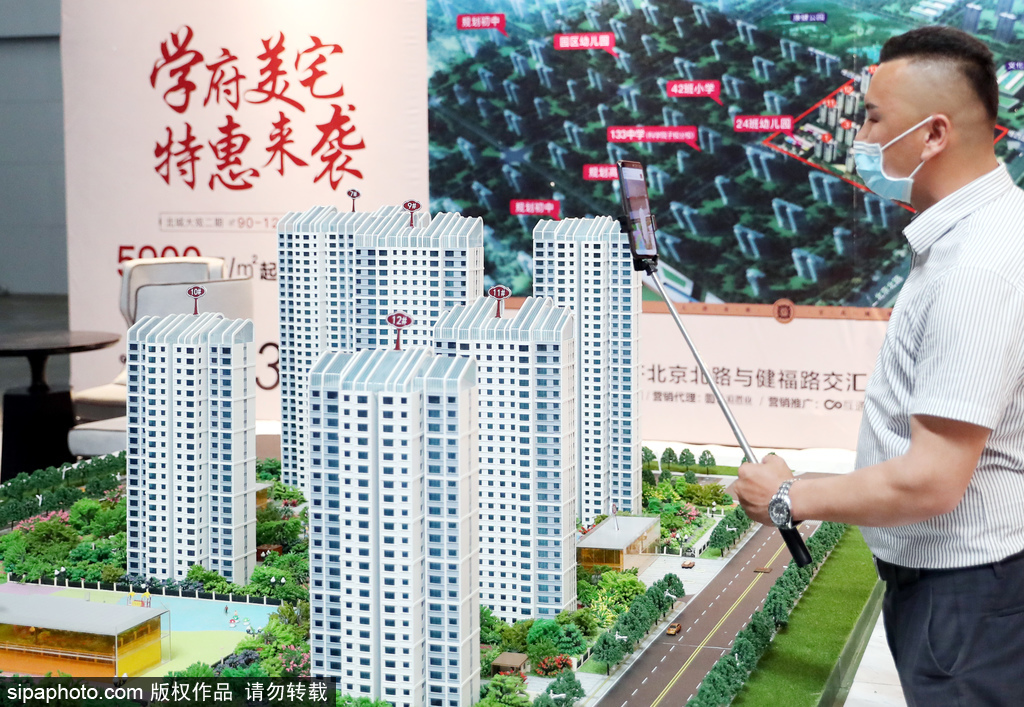Price control can curb realty sector speculation


People ought to pay closer attention to new developments and new problems in the real estate market, Vice-Premier Han Zheng said at a recent symposium while emphasizing the importance of establishing a long-term management mechanism to ensure the stable and healthy development of the real estate sector.
Housing prices in Shenzhen have soared in recent times, raising public concern about the real estate market. Thanks to multiple factors including high housing supply and demand, economic growth and population inflow, housing prices in Shenzhen have shown the steepest increase in the country with potential of rising further. And the introduction of easy monetary policy to overcome the impact of the novel coronavirus outbreak appears to be the trigger of the rapid rise in housing prices in the city.
The devastating impact of the COVID-19 pandemic on economies has forced major central banks to launch easy monetary policy. With many central banks cutting interest rates, even implementing zero-interest or negative-interest rate policies, global money supply has hit a record high. By the end of June, China's non-governmental financing scale had increased 12.8 percent year-on-year, with M2 increasing 11.1 percent year-on-year and renminbi loan balance 13.2 percent year-on-year.
But the actual credit fund absorption capacity of industries is still weak, as the real economy hasn't fully recovered. And given the easy monetary policy, many low-cost credit funds have flowed into the stock and real estate markets. Since home-buying restrictions are fewer in Shenzhen relative to the other first-tier cities of Beijing, Shanghai and Guangzhou, it has become a hot spot for speculation in the realty market leading to constantly increasing housing prices.
According to zfdsj.org's housing price index in June, housing prices in Shenzhen increased 11.35 percent in the first half of 2020, compared with 4.72 percent in Shanghai, 2.81 percent in Beijing and 0.23 in Guangzhou.
First, as credit expansion is reaching its upper limit, the social financing growth rate is highly likely to slow down in the future. And since credit expansion will solely depend on demand in the second half of this year, its growth rate, too, is expected to slow down.
Guo Kai, deputy director of the monetary policy department of the People's Bank of China, China's central bank, said monetary policy would be moderated. A moderate monetary policy means a moderate scale of credit in line with economic recovery, and further lowering of financing costs, in order to boost the real economy. But moderate reduction in the interest rate doesn't mean reducing it to as low as possible.
Second, the central government has emphasized that housing should be for living in, not for speculation, showing that it's determined to maintain the stability of the real estate market. On April 20, the Shenzhen central sub-branch of the PBOC, with the aim of curbing the unusual rise in housing prices in the city, issued an urgent notice about illegal funds flowing into local real estate sector. This prompted the Shenzhen local government to announce eight new measures to control housing prices, and thus curb speculation in the real estate sector. As such, Shenzhen's real estate market is expected to gradually cool down in the second half of the year.
Given the damaging impact of the pandemic and the uncertainties facing the global and domestic economies, there is no economic reason behind the continuous and large-scale rise in housing prices. That's why housing prices are expected to return to the normal track after the authorities tighten the property price-control measures.
To prevent speculation in the real estate market, local governments should abide by the price-control regulations based on a city's real conditions. Also, metropolises and their neighboring cities should establish joint mechanisms to prevent and control speculation, so as to curb housing prices. And the housing purchase restriction system, which was implemented 10 years ago, should be adjusted according to the actual market conditions today. In the short term, upgrading the housing purchase restriction policy could effectively curb investment and speculation in the realty sector.
The author is a research fellow at the Research Institute for Eco-civilization, Chinese Academy of Social Sciences.


































